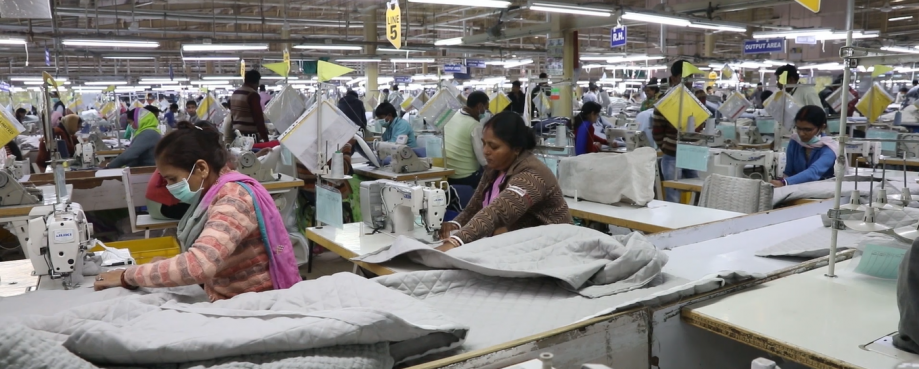
Multinational retailer and ETI member, Marks & Spencer, is working to eliminate sexual harassment and gender discrimination in its India supply chain. Reaching around 12,000 women, the programme is now the focus of a short film published today by ETI.
Sangeeta Patel is one of 27 million women working in India’s clothing and textile sector. Despite making up 60% of the sector’s workforce, on average women will earn just 57 rupees for every 100 earned by men, while many will be among the 38% of women across India who have had to deal with sexual harassment in the workplace.
“Women are considered weak,” Sangeeta tells us from the dormitory she shares with other women garment workers. “But they don’t understand her inner strength.
“In the workplace,” she adds. “The attitude of men towards women needs to change.”
"It has taught me how to dream"
Now, women like Sangeeta are coming together to demand that change, and employers like the the Orient Craft factory where she works as a quality checker are helping to support them.
Together with nine other factories across India, the factory is part of a gender equality programme designed and supported by multinational retailer and ETI member, Marks & Spencer.
The programme and its impact are the focus of a short film published today by ETI.
Reaching around 12,000 women across India, the benefits are already being felt by Sangeeta and her colleagues. When she started at the factory, she was a line checker. Now she supervises five lines and helps deliver the factory’s gender training.
“I can do anything!” Her colleague, Malti, tells us. “[It] has taught me how to dream.”
Learn more about best practice like this and discuss the latest trends in ethical trade at our two-day international conference on October 31 and November 1. Register here
